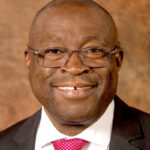Attorneys In Pretoria Reported To Have Negligently Paid R1.7 Million In Fake Account. The law firm had already paid R1.7 million into an account.
A law firm in Pretoria has appealed a ruling at the high court that they owe a client R1 744 599.45 including interest. The law firm had already paid R1.7 million into an account. However, it seems like the account that they gave the money to was a fraudulent account because of hacking. Businessman Johan Andre Fourie employed the law firm, Van de Spuy and De Jongh, as conveyancers in a property transfer.
They maintained about R4 million that was linked to the transfer. This was the money that the businessman asked them to keep in an investment account. At one point, the firm got an email from the businessman’s supposed new banking details. The law organisation was asked six times to pay amounts ranging from R285 000 to R750 000. The money was asked to paid from the clients bank account. It was only after the attorney, Nicola van der Spuy, and businessman Johan Andre Fourie had a phone conversation, whereby she noted the money that that asked to be paid over.
The fraudulent activity was found then when she found out that the businessman’s email had supposedly been hacked and taken over. The firm could only get two of the funds that they transferred into the account. The law firm told Fin24 on Monday that they consider the high court judgement of them paying an estimate of R1.7 million including interest as unfair. Nicola van der Spuy says, “It was our client’s email that was hacked, not ours. Our client was negligent to have had someone hack his email. We were not negligent. I had worked with this client before and his instructions always came via email.” The attorney reportedly states that the businessman says some of the emails that the firm got were from him but some were not.
However, Johan Andre Fourie reportedly didn’t allow the attorneys to look at his laptop once the fraud was discovered in order to attempt to see how and why the email was hacked. The acting judge, Matthew Klein, states that if the attorney found out if the new details were correct then the fraudulent activity would have not happened. “It is abundantly clear from the facts that no verification process was followed and that the firm would have to carry the loss, not the applicant,” says judge Matthew Klein. The judge went on to say that at the speed at which cybercrime happens makes the internet an insecure place of work. He states that its might be time for attorneys to not accept email notifications about banking details.
by Alexandra Ramaite












